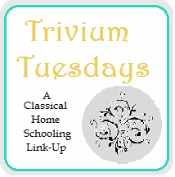 A few weeks ago I share about the basics of classical education for homeschool and how science fits into this methodology.
A few weeks ago I share about the basics of classical education for homeschool and how science fits into this methodology.
Normally when one thinks of classical education for homeschool, they equate it with literature, Latin, and history rich studies. Science is often seen as an afterthought or as a weak, book-centered addition to typically rigorous curriculum plan.
Today, I want to share with you why I believe classical science can provide a strong and thorough plan for science education.
What does a rigorous science curriculum look like?
At its core, a rigorous science curriculum needs to contain three key ingredients:
- Hands-on applications
- Knowledge-building facts
- Record keeping
These three most basic components need to be present in any quality science program. They need to be carefully balanced. Too much focus on the hands-on will leave the students lacking in the core knowledge that they need to know, while too much focus on the facts will lead to the students to not knowing how to apply those principles to real life. No record keeping and the students will not be likely to remember what they have learned, too much and the students will begin to despise science.
This is why it is so important to have regular demonstrations or experiments alongside living books, encyclopedias, or textbooks for homeschool science along with a way to record what the student has learned. In a strong science educational plan, these elements, at a minimum, will be incorporated weekly.
On top of that, a rigorous science education will start early and build upon itself throughout the years. This course of study recognizes that the body of scientific knowledge can not be taught in the span of four years. It also recognizes that many of the basic concepts of science can be learned at a young age.
A strong education in the sciences acknowledges that introducing the facts and applications early and often causes the student to build a strong foundation. This foundation will support further growth and provide the ability to understand the “tough” concepts of science. This type of plan will also foster a love for the subject and increase the student’s ability to observe and process information.
How does classical science fit the bill?
As I shared last month, classical science is taught like any other subject in this educational model. You focus on the different skills of the subject that are appropriate for each stage while seeking to build their knowledge base at each level.
- In the grammar stage, you are working on sharing basics of science;
- In the logic stage, you are building on that foundation by asking why things are the way they are;
- In the rhetoric stage, you are analyzing the principles you know and learning how to apply them to an unknown situation.
At each stage, you are including both hands-on applications and knowledge-building facts. The way you incorporate these elements will look different, but the two are balanced together to create a strong education in the sciences.
As classical homeschoolers, we can attune these two foundational components to create a rigorous science education plan for our students.
Is it really possible for classical science to be rigorous?
I hope that you can see that with careful planning, classical science really can be considered rigorous. Over the next few months, I will share more details about what that looks like at each of the three stages of classical education. I plan to provide you with the goals and a few basic tools that you can use to build a framework for classical science in your homeschool.
I’ve added this post to the classical homeschooling link-up, “Trivium Tuesdays” hosted by Living and Learning at Home. There is a wealth of information on the subject in these posts, so be sure to check it out!
If you have any questions about classical science, please feel free to leave them in the comments below.
 Sign up below to receive weekly tips & tools for homeschool science and we'll send you a FREE copy of
Sign up below to receive weekly tips & tools for homeschool science and we'll send you a FREE copy of 

